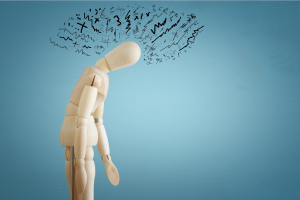Addiction Recovery: Why My Approach Is Trauma-Informed
 It’s so hard to watch a loved one struggle with addiction. Whether it’s to using drugs, alcohol, food, pornography gaming, or something else, friends and family often feel helpless and hurt. We grieve losing connection with the person we care about.
It’s so hard to watch a loved one struggle with addiction. Whether it’s to using drugs, alcohol, food, pornography gaming, or something else, friends and family often feel helpless and hurt. We grieve losing connection with the person we care about.
Why does addiction happen? What can friends or family do?
I see addictive behavior as a coping mechanism for something bigger: unhealed trauma. It’s important to see people who use as people in pain.
Understanding trauma’s role in addiction will help more of us see how we might help. Compassion and insight are keys to offering a more healing response that allows us to address trauma and find personal strengths and skills for healthier choices.
Understanding Addictive Behavior As a Survival Strategy
As a trauma-informed therapist, I ask: What would cause a person to need to do something so dangerous as risk addiction? How does this make sense? How might this be an attempt to feel better — or actually less badly in daily life? By working carefully with a person struggling to cope by using, we find trauma at the root of addiction.
Why Addiction Behavior Starts
Using may start as experimentation or fun. It might come from a simple desire to belong with friends who are “doing it.”
Social isolation is painful. People with a history of trauma may not know they are already struggling with a nervous system overwhelmed with toxic stress.
- In surveys of adolescents receiving treatment for substance abuse, more than 70% of patients had a history of trauma exposure.
- More than 13% of 17 year olds (1 in 8) have experienced posttraumatic stress disorder in their lives.
- The Partnership for Drug Free Kids points to a study that finds “a high rate of childhood trauma in adult alcoholic inpatients. The researchers suggest childhood trauma should be considered when developing prevention and treatment strategies for adults with alcoholism.”
People don’t really become addicted “for fun.” Addictive behavior begins as a survival strategy. A person uses to get through life each day, because of how using makes them feel (or not feel).
A sense of feeling unsafe in relationships, or not okay with one’s own thoughts and emotions, often forms in childhood.
Using is a way to numb, self-soothe, or fight back against distressing thoughts, feelings, and intrusive memories that have become unmanageable as a person struggles through adolescence and adult life.
It is an attempt to dissociate — disconnecting with one’s own negative thinking, intolerable emotions, and painful inner world.
Helping People See the Need for Treatment
Many people take up drinking or using socially. They may not consider their life experience to include trauma.
So, it’s important to ask yourself, do you drink or use to manage your emotions?
You deserve to feel safe in your own skin without having to numb, escape, or alter how you feel inside. If you do, it’s time to start looking at the issues behind the substance use.
You may have a dependence that needs treatment, even if you don’t drink or use every night.
Drug or Alcohol Use/Addiction Warning Signs
Warning signs that drinking or substance use needs professional treatment include:
- Recurring binge drinking or drinking or using to excess.
- An inability to leave unfinished alcohol behind (for example, a person without alcohol dependence may leave wine served with a meal unfinished; a person with a dependence problem or disorder is unable to leave unfinished alcohol behind)
- Feeling you have to be using or drinking to socialize–you can’t go to a party and tolerate being there without taking or drinking what others are
- Using or drinking even when you are not feeling well
- Drinking and driving or using and driving
- Normalizing the using behavior: “Everybody in the club drinks this much.”
- Drinking or using for effect — to alter the mood you are feeling.
- Drinking to help regulate emotions or to numb psychological pain: “I don’t want to think about that right now; I don’t want to deal with that right now.”
- Loved ones and colleagues tell you that your use hurts them, worries them, or is damaging your relationship
Addiction Recovery Through Trauma-Informed Therapy
Trauma-informed therapy is the best way I know to go from coping to living fully and freely without depending on drugs or alcohol.
Trauma-informed therapy recognizes a person’s substance use as a way to cope with overwhelming emotions and intrusive memories of feeling unsafe or threatened.
Safety is the priority in a trauma-informed approach. A trauma-informed therapist develops ways to help the client manage triggering flashbacks or overwhelming responses before exploring how trauma has played a role in the person’s life.
The therapist works gradually, while helping a person find personal resources and connections with supportive people.
Recovery empowers individuals to handle situations that triggered using behavior before.
Trauma-informed therapy for alcohol and substance abuse involves:
- Creating a respectful, compassionate, safe arena for doing the work
- Fostering an understanding of the link between underlying mental health related issues, such as trauma and mood disorders and the course of addictions
- Supporting self-compassion and self-respect to counteract the shame and guilt that is the inevitable byproduct of a person’s experience with addiction and underlying experience with mental health issues and trauma
- Helping individuals develop their own healthy solutions to the problems that they have identified
- Finding outside resources for support; such as recovery groups like AA, SAA, NA, OA, etc.
Let’s Break the Cycle of Addiction
Drug addiction itself is not something people choose. Addiction comes from desperate attempts to cope with stresses and symptoms a person can’t manage. They may not even recognize they are dealing with trauma. Trauma’s symptoms range from obvious anxiety, depression, or flashbacks, to poor self-care that may go unnoticed for years. In trauma-informed care, we take a safe, slow approach to healing the hurts that have led to addictive behavior.
We may still wonder why people put drugs or alcohol into their body. But it’s a real mistake to label them bad people. What would the world look like if we saw people with addiction as people in pain who needed treatment, not judgment?
Substance use may seem like a baffling or bad decision. If we want to help, we’ll remember: People struggling with addiction deserve — and need — our compassion and support to heal.
Recommended Resources
- To Heal Trauma, Free Your Most Compassionate Self
- Trauma-Informed Care: Understanding the Many Challenges of Toxic Stress
- 9 Signs You Need Better Self-Care and May Be a Trauma Survivor
- Why You Need a Trauma-Informed Therapist, Even if You Don’t Think You Have TRAUMA
- Do you use drugs and alcohol to manage your emotions?
- How Essential is Compassion in Treating Opiate Addiction?
- This is Why You Can’t Be In a Rush to Heal Trauma
2 Comments
Comments are closed.










Excellent article. Very true that the vast majority of addicts and alcoholics have a history of trauma..perhaps 80-85%…but that still leaves 15-20% who do not. Trauma is a strong factor in addiction but not the only factor.
Each word and line of this topic coming from author’s deep understanding and compassionate heart.
God bless you